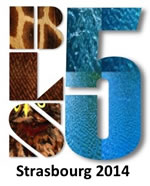|
|
|
Workshops > WS2How can bio-logging advance our understanding of flight?
Shepard Emily 1, Duriez Olivier 2
1: Swansea University, United Kingdom (E.L.C.Shepard@swansea.ac.uk) 2: Université de Montpellier 2, France (olivier.duriez@univ-montp2.fr)
Bio-logging has provided fundamental insights into the ecology, physiology and biomechanics of flight, revealing movement patterns that theoreticians once considered impossible. New developments in sensor capability combined with further miniaturisation of devices mean that these types of advances are set to continue. This workshop will examine how bio-logging tools are changing our ability to study flight. It aims to provide an overview of some recent findings in this field, and stimulate new research by bringing experts and interested parties together to share information on emerging areas and techniques in data collection and analysis. The workshop will begin with a plenary and the two sessions that follow will consider how external factors, namely the physical environment and conspecifics, interact with (i) navigation capacity and (ii) motion capacity, respectively, to produce the movement path.
Movement ecology gets wings Prof. Ran Nathan, plenary speaker This perspectives talk will outline the principles of movement ecology and illustrate them with examples of work in Prof. Nathan's group, including incorporation of risk-sensitive behaviour into soaring flight theory, co-ordinated flight in vultures and jackdaws, and true navigation of non-migratory bats and birds.
Go with the flow or deal with drift? Dr Jason Chapman Insect orientation responses to the wind will be discussed with respect to (i) navigation over small spatial scales (homing flights of social insects); and (ii) windborne migration over large spatial scales (long-range seasonal movements). The talk will draw on data from harmonic radar studies of tagged bees and vertical- looking entomological radar studies of high-flying migrant moths.
Social behaviour and spatial navigation in a bat flock Dr Yossi Yovel This talk will discuss navigation and information transfer in collectively foraging bats, using data from an entire flock of free-living animals equipped with miniaturised GPS units with integrated microphones.
Co-operative (and not so co-operative) aerodynamics in flocking birds Dr Steve Portugal What are the consequences of group flight for individual performance and energetics? This talk will examine these issues in avian flocks using high-frequency accelerometer and GPS data, focusing on cluster and V formation flight.
Opportunistic flight behaviour of gulls Dr Judy Shamoun-Baranes This talk will examine the opportunist nature of gull flight, over sea and over land, exploring the effects of the physical environment from daily to seasonal scales, by combining atmospheric models with long-term, high-resolution data on movement paths (using GPS) and flight strategies (using accelerometry).
How wing morphology can affect soaring flight performance and energetics Dr Olivier Duriez The performance and energy costs of soaring flight will be examined using a combination of heart-rate, accelerometer and high-frequency GPS data from captive freely-flying raptors (vultures and eagles) with various wing and body morphologies (wing span, wing loading, aspect ratio).
Up close with high-soaring birds: What can fine-scale movements reveal about performance? Dr Emily Shepard This talk will explore what high resolution movement data from Andean condors (accelerometry, magnetometry, and environmental sensors) can reveal about performance envelopes, behaviour and the airspace these animals operate in.
|



